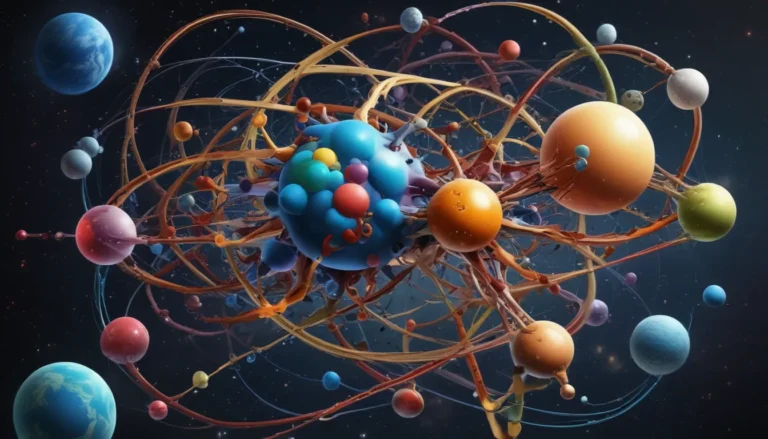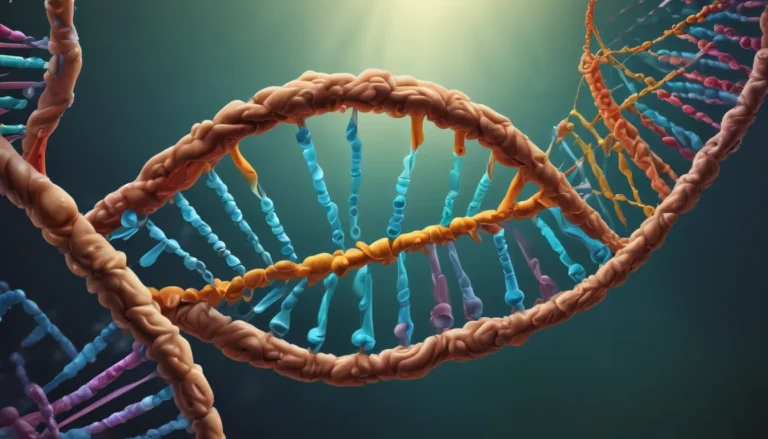A Note About Images: The images used in our articles are for illustration purposes only and may not exactly match the content. They are meant to engage readers, but the text should be relied upon for accurate information.
Chemistry enthusiasts, buckle up for a fascinating journey into the world of reaction intermediates. These fleeting species play a pivotal role in chemical reactions, acting as the missing link between starting materials and final products. Join us as we unravel 19 captivating facts about reaction intermediates that shed light on their significance and the enchanting realm of chemical transformations.
Exploring the Significance of Reaction Intermediates
1. Reaction Intermediates in Action
Reaction intermediates are short-lived entities that form during a chemical reaction, neither being reactants nor products. They serve as critical players in the overall reaction mechanism, influencing pathways and selectivity.
2. Highly Reactive Nature
Due to their transient existence, reaction intermediates are highly reactive, often harboring unpaired electrons or strained bond geometries that make them prone to further reactions.
3. Diverse Classification
Reaction intermediates come in various types, including free radicals, carbocations, carbanions, and transition metal complexes, each exhibiting unique properties and behaviors.
An In-Depth Look at Different Reaction Intermediates
Free Radicals:
– Definition: Highly reactive species with unpaired electrons.
– Role: Common in radical polymerization and atmospheric chemistry.
Carbocations:
– Definition: Positively charged intermediates.
– Role: Often involved in electrophilic reactions.
Carbanions:
– Definition: Negatively charged intermediates.
– Role: Commonly participate in nucleophilic reactions.
Transition Metal Complexes:
– Definition: Catalytic intermediates in various chemical reactions.
– Role: Undergo transformations like ligand exchange and oxidation/reduction.
Techniques for Studying Reaction Intermediates
1. Indirect Detection Methods
Since reaction intermediates are short-lived, their direct observation poses a challenge. Scientists rely on spectroscopic techniques and chemical trapping methods for indirect evidence.
2. Influence on Reaction Selectivity
The presence of different reaction intermediates can lead to varied reaction pathways and outcomes, emphasizing the significance of understanding these entities for controlling reaction selectivity.
3. Rearrangement Abilities
During a chemical reaction, reaction intermediates can undergo atomic or molecular rearrangements, impacting the overall reaction mechanism.
Impacts and Applications of Reaction Intermediates
1. Catalyst Stabilization
Catalysts can influence the stability of reaction intermediates by providing alternative pathways or forming coordination complexes, enhancing reaction rates and efficiency.
2. Computational Studies
Computational chemistry plays a vital role in studying reaction intermediates, offering insights into their electronic and molecular properties.
3. Organic Synthesis Relevance
Reaction intermediates are essential in organic synthesis, guiding the design of efficient and selective synthesis routes.
4. Role as Catalysts
In some instances, reaction intermediates can act as catalysts themselves, facilitating bond formation and promoting specific intramolecular processes.
Journey into the world of Reaction Intermediates
Embark on a captivating voyage into the realm of reaction intermediates, where surprising facts and hidden mechanisms await your discovery. Unveil the secrets that shape chemical reactions, from groundbreaking research to innovative applications. Embrace the complexity and significance of reaction intermediates, transforming your understanding of these essential compounds.
Trust in Our Commitment to Quality
Our dedication to delivering engaging and trustworthy content ensures that each fact shared with you is thoroughly reviewed for accuracy and credibility. Join us in exploring the fascinating world of reaction intermediates and deepen your knowledge of these enigmatic yet vital entities in the field of chemistry. Your curiosity will be met with a wealth of valuable insights and discoveries, enhancing your appreciation for the intricate processes that drive chemical transformations.






